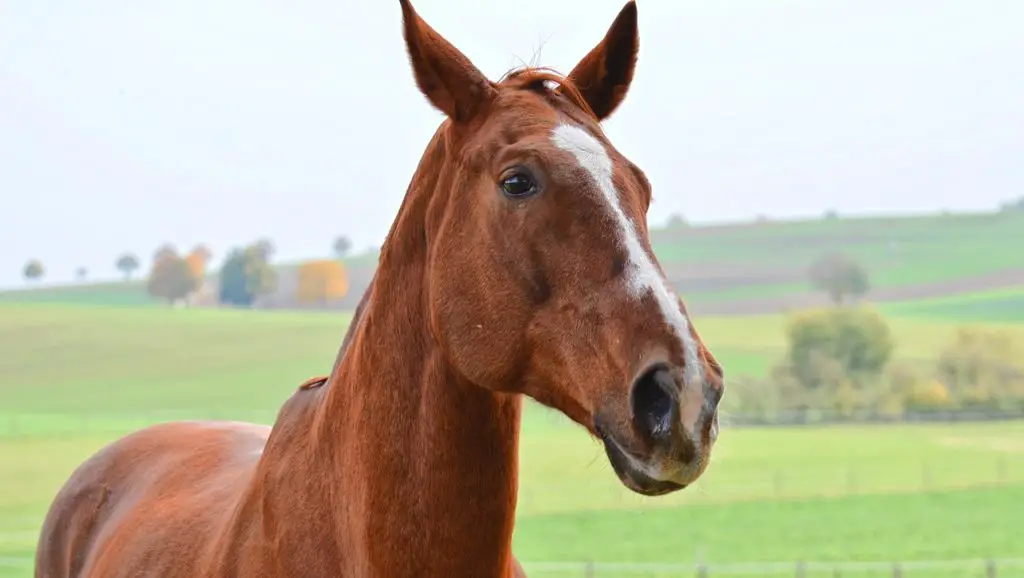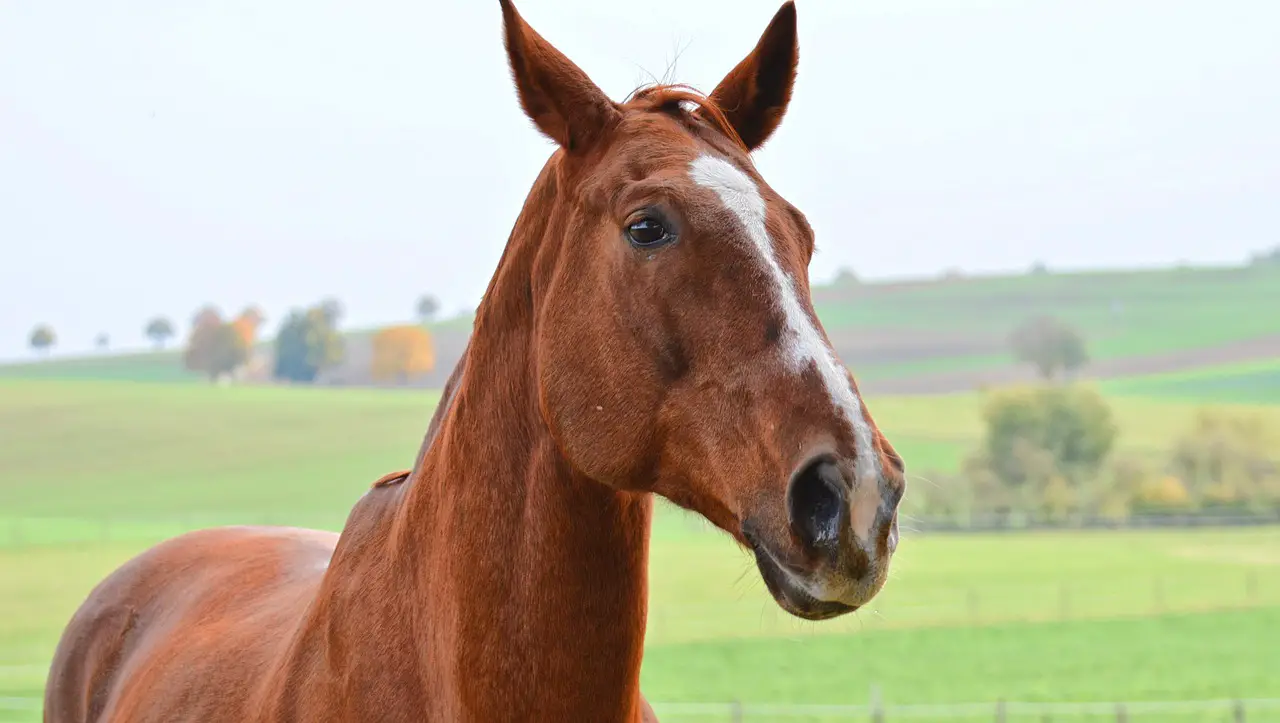Last Updated on April 7, 2022 by Allison Price
Horses that refuse to eat are the most frustrating and worrying thing. Horses can become unwell from a variety reasons, including illness, unpalatable food or gastrointestinal disorders like hindgut acidosis. There are things you can do that will get your horse back to eating. These are some helpful tips to keep your horse’s appetite healthy.
STEP 1: IDENTIFY THE REASON YOUR HORSE DOES NOT EAT
To get a horse to eat again, the first step is to determine what has caused him to lose appetite. There are several options:
- Disease: If the horse has a stomach problem, such as gastric ulcers, it is likely that his appetite will be reduced.
- Pain Horses can experience a dramatic decrease in appetite when they are in pain. A horse can experience lameness, muscle soreness after a hard workout or mild colic.
- Vitamin B1 deficiency Several plant species, including horsetails, bracken fern, rock ferns, and nardoo contain an enzyme called Thiaminase that destroys vitamin B1 (also known as Thiamine) in your gastrointestinal tract before it is absorbed by the horse. Over time, this can lead to vitamin B1 deficiency. A B1 deficiency can cause loss of appetite in horses and other animals. There is a good possibility that your horse’s lack of appetite may be due to uncooked grains such as corn or barley. The hindgut bacteria produces thiaminase, which can cause a vitamin B1 shortage and a loss of appetite.
- Mycotoxin poisoning: Many feeds, including hay, chaff, and grains can become contaminated with mould (fungi) and these fungi can cause mycotoxins if they are given the right conditions. Mycotoxin poisoning can cause loss of appetite in horses. Mycotoxins are often suspected when horses suddenly stop eating their feed due to a change in the source of hay, grain or chaff. Are mycotoxins to blame? Read our blog post “What to do if your horse is suffering from mycotoxins?”
- Unpalatable Feeds: Horses will not eat feeds or forages that are too salty, mouldy, stale or rancid. Soybean meal, for example, can be a bad choice and cause horses to lose appetite.
- Adding too many supplements can make horse feeds unpleasant and prevent them from eating. Concentrated vitamin/mineral preparations, and electrolyte supplementation are examples of this.
- Medications. Putting Bute in a horse’s feed can make it unpleasant and cause a horse to stop eating it.
- Stress: Horses can feel less hungry if they are stressed by changes in routine or losing a friend.
STEP 2 – REMOVE THE CAUSE OR TAKE ACTION
Once you’ve identified the root cause of your loss of appetite, work with your veterinarian to correct it.
- Disease – Consult your veterinarian if you think your horse may have an illness that is causing it to stop eating.
- Pain – Again, consult your veterinarian to determine and treat any pain that is preventing your horse from eating. A dentist may be able to examine the teeth and mouth of your horse for any potential issues.
- Vitamin B1 deficiency – If your horse is eating plants containing thiaminase remove him from the pasture and give him a good amount of hay. You can replace whole grains or uncooked grains that your horse was eating with cooked grains. You can replace whole or uncooked grains with cooked ones (e.g., micronized, extruded or steam flaked) or high-energy fibres such as sugarbeet pulp and soybean hulls. You should also give your horse as much hay and grain as you can afford. Hindgut acidosis can cause a horse to lose appetite. However, the horse will still be hungry for forage if it is not starving. A vitamin B1 oral supplement can also be used to replenish vitamin B1 levels and restore appetite to normal.
- Mycotoxin poisoning – If you suspect that mycotoxins are contaminating your food, locate the source. You can check for visible signs of mold (which does not always indicate the presence or absence of mycotoxin), or send the feeds to be tested for mycotoxin. EquiAnalytical offers a mycotoxin screening program. Once you’ve found the source, take it out of your horse’s food and replace it with something else. Mycotoxins can be a problem. Products like Mycosorb(r), which trap them and prevent their absorption by horses, are options. Mycotoxin poisoning can be caused by hay and chaff. Click here for more information.
- Unpalatable Feeds: Locate the feed that is not suitable for your horse and substitute it with something more palatable. You can simplify your horse’s diet to only one or two ingredients. Then, as your horse regains appetite, add additional ingredients one by one. If your horse suddenly stops eating after you have added a certain ingredient, take it out immediately and substitute a better one. If it is salt, give the horse a salt lick but don’t add salt. You can remove salt from your horse’s feed if you add salt. Salt is one of the ingredients that can quickly turn horses off their feed.
- Avoid over-supplementing – Use FeedXL for a more precise adjustment of your horse’s diet to ensure that his needs are met. Pay attention to how much sodium is in the horse’s diet.
Horses will not eat a diet that is too high in sodium (a component salt), if they are fed a poor diet. - Do not give medication to a horse that is fussy. Mixing the medication with apple sauce in large syringes or clean tubes of worm paste can be used to administer it directly to your horse’s stomach after they have finished eating their feed. Do not give it to your horse before they eat. You should give vitamin B1 to your horse until they regain their appetite if you suspect that they are suffering from a vitamin-B1 deficiency.
- Stress – If your horse is upset by changes to his routine, try to keep it as consistent as you can and have someone close by. They are herd animals, and they don’t feel safe or comfortable being alone.
STEP 3 – SIMPLIFY YOUR DIET
It is possible that your horse may not eat its usual ration after a certain time. This happens even if you treat or remove the cause. You should keep your horse on a low-calorie diet for as long as you can. Begin by ensuring that your horse has access to good quality pasture or hay. Next, add each ingredient one at a while, starting with those that your horse loves the most. You should allow at least two days before adding new ingredients.

Except for vitamin B1 if a B1 deficiency has been suspected, you should remove any supplements from your horse’s diet until they have a healthy appetite. If you decide to reintroduce supplements for your horse, only do it one at a given time. This will allow you to determine if they don’t like the taste.
STEP 4 – MAKE THEIR FOOD TASTY
If you haven’t been able to resolve your horse’s lack of appetite or simplify the diet, consider adding some ingredients that are pleasant to the horse’s nose and palate to get them to eat again. Here are some ingredients that you might try:
- Bran
- Honey
- Molasses
- Applesauce
- Grated carrots or apples
- Brewers yeast
- Lucerne chaff
FINAL FIVE BITS AND PIECES
These tips should help you identify what is causing your horse’s feed to stop. You should also remember the following:
- You should ensure that the horse’s feed container is in a comfortable place. If your horse is unable to walk on one leg, place the feed bin at chest level.
- Horses will almost always eat fresh grass, so make sure you give it a chance to graze. Don’t force the horse to eat hard or hay.
- To keep your pet’s food fresh and tasty, you should feed them small, frequent meals.
- Pay attention to how much feed and water the horse is taking in. The risk of colic is higher if your horse is not eating enough or drinking enough. Call your vet right away if you have concerns about your horse. They will discuss the best management plan to keep your horse hydrated until it regains its appetite.
Dr. Dr. Nerida Richards, FeedXL’s resident Equine Nutrition Specialist. Nerida has a degree and doctorate in Rural Science. She also has nearly 20 years of experience on the ground feeding horses. You can learn more about Nerida or meet the FeedXL team by visiting our About Us page.


